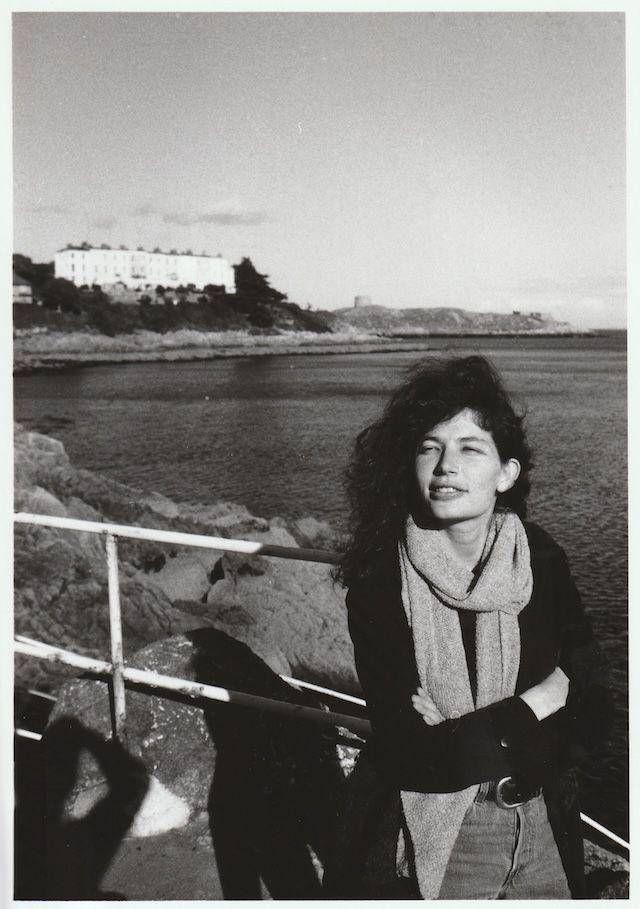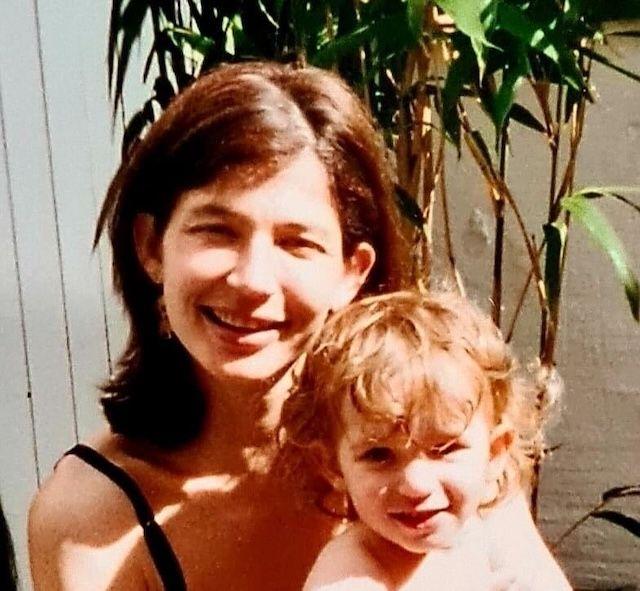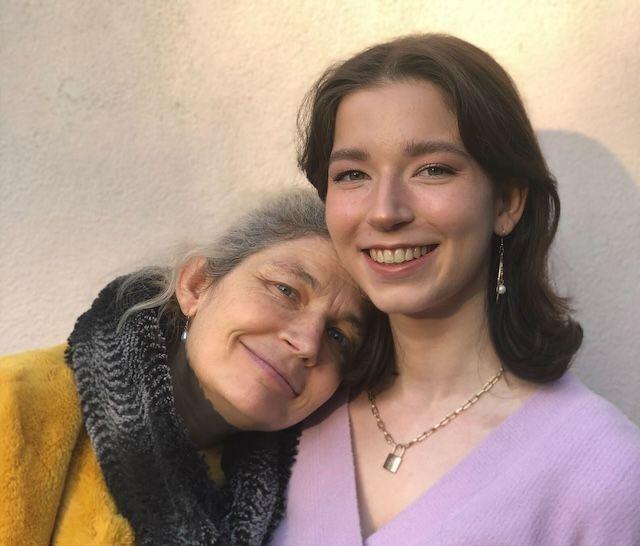
Health

Share
7th March 2025
12:16pm GMT

By Martha Lovett Cullen
The first time I heard the term dense breast tissue was in December 2023. It was the week before Christmas, and my mum, Marian, had arranged to go for breakfast with me and my younger brother in a cafe on Drury Street. It was a drizzly Tuesday morning, yet we sat outside under the canopy, as mum liked the fresh air and watching the crowds pass beneath the Christmas lights, despite the terrible weather.
My brother had asked me a few days before whether everything was okay with mum as she had seemed off the last few weeks, something I had also picked up on. She was quiet, and wasn’t asking to see us as often as usual, behaviour that was very out of the ordinary for her. In reality, it was no wonder she felt like she couldn’t face us, as we could never have been prepared for how drastically things were about to change.
After chatting over coffee, Mum announced that she had something important to tell us, something that she had been putting off for a long while.
Looking back on it now, part of me thinks she put it off for so long because she was scared of it becoming all too real the minute she finally told her children, because it did.
I never thought it would happen to me. Never in a million years did I think that I would be the daughter holding her mum’s shaking hands, tears gently falling down her face as they streamed down mine, while she told us about the cancer that had invaded and now wrongly occupied her body.

I held her as she spoke about the scans and the appointments and the dense breast tissue that must have masked the tumour when she got the all-clear on her BreastCheck screening only a year before.
My 19-year-old brother looked shellshocked in a way I’d never seen before, his face growing paler as the reality of what he was hearing was setting in.
Our only respite was to hear that, although it was invasive metastatic breast cancer, it was still only at stage 3. Mum’s treatment options seemed promising, and the idea of worst coming to worst wasn’t even crossing our minds yet.
When my mum first found the lump in August 2023, she insisted on further screening from her GP as she felt that something wasn’t right, and she would have had to wait another year for her next BreastCheck.
After receiving her diagnosis, she was also informed that due to having very dense breast tissue, which appears white on a mammogram, if her tumour was there during her BreastCheck screening the year prior, it could have been missed.

This was the first time my mum was told she had dense breast tissue - something that had never been mentioned to her during any of her previous screenings. Somehow, her missed diagnosis was considered to be within an acceptable level of error for false negatives, a fact that I’m still struggling to come to terms with today.
Leaving the cafe that day felt like I was leaving a version of myself behind, sitting alone at that table. A version who was blissfully ignorant to the harsh realities of the world. Why my mum? How was it possible that the strongest, kindest, and most caring person I knew could now be sick?
She didn’t smoke, she drank in moderation, she was regularly active, and she ate healthily. What did she do to deserve it? None of it made any logical sense, and to this day, it still doesn’t.
If you’re lucky, your parents are the one constant in your life. They are the ones you can always count on, no matter what. They are your North Star. Our North Star had now been snatched from our sky and thrown into total chaos, and the possibility of what could happen next petrified us.
After a difficult Christmas, Mum requested a transfer to a hospital closer to home while waiting on additional scan results. On January 4th, she was told that her cancer was not stage 3, but advanced stage 4 metastatic breast cancer. A terminal disease with limited treatment options. It felt like the ground had been ripped from beneath us, shattering any hope we had left.
Still, she followed her treatment plan as advised, determined to keep living her life at the same time she was receiving chemotherapy. Nothing was going to stop her from making the most out of every day she had, even more so during those months. Her strength and optimism were unmatched, an attitude I could not have been prouder of.
In early August 2024, right after her 61st birthday, mum was rushed to the hospital due to complicated side effects she was experiencing from the chemo, which was going well up until this point. After more treatment and procedures to alleviate this, she was making great progress and was getting ready to come home to her family at the end of the month.
One morning, after having breakfast with her in the ward like we usually did throughout that terrible month, we hugged as I said goodbye to her, telling her I’d be back at the same time again the next morning. What I didn’t know was that that would be the last time I felt my mother’s soft, strong arms wrapped around me.
We lost her on August 26th, 2024.

What no one realised was that, during her month in the hospital, Mum's cancer had silently progressed while she took a break from chemo to recover from the side effects. Over a short 24 hours, the cancer burst like a dam, attacking all parts of her body, including her brain.
None of us saw it coming as quickly as it did, especially when she had been her bright, chatty self only a few days before.
It was indescribably devastating, and still is to this day. Trying to explain the feeling to people who haven’t been through it yet feels like speaking an entirely different language that you haven’t quite got the hang of yet, and you know you never will.
During mum’s treatment, she was infuriated by the thought that had she been notified of her breast density at her screening in 2022, further scans would have been done sooner, and her cancer might not have been found at such an irreversible stage.
Even from the hospital bed, she was investigating how it was even possible that only a year after receiving the clear result from BreastCheck, she was then being told she had a 10cm tumour that was spreading. How did this happen?
Not long after my mum passed, a friend told me about a woman doing incredible work in breast density awareness called Siobhan Freeney, a patient advocate and campaigner for the issue.
Siobhan also attended her routine scan as part of the BreastCheck programme in June 2015. Her mammogram came back clear, much to her relief. What she didn’t expect was to be diagnosed with stage 3 invasive lobular breast cancer just 6 months later.
Hearing Siobhan’s story and what she learned as a result of her own experience opened up my eyes in a way I didn’t think possible. It amplified the magnitude of the injustice that my mum suffered due to lack of transparency around information she should have been entitled to about her body.
This is crucial information that both Siobhan and my mum should have been told, just as they would be informed by their GP if they had high cholesterol or high blood pressure during a check-up - knowledge that could have helped prevent the worst outcome.
Siobhan shared:
“Up to half of breast cancers are missed in women with dense breasts. I think it’s information that needs to be freely available. It should be given to all women who have mammograms. It’s a risk factor for developing breast cancer. And if you have dense breasts, you run the risk of having breast cancer missed.”
The only way to find out if you have dense breasts is by having a mammogram, as it is not a trait women can feel through self-examination.
Siobhan has developed a Breast Density Request Form that is available through her website https://beingdense.com, which includes vital information, including all relevant scientific references and sources.
Women can fill this out, and take it with them to their screenings, as part of their insistence to know their own breast density.
There were days I spent with my mum during her illness when all she could talk about was the unfairness of it all. How she couldn’t comprehend the fact that she had been getting clear scans for years, only to then get a false negative and a terminal diagnosis out of the blue.
Nobody ever thinks about their own parents dying. You hear stories about friends of friends or Instagram mutuals or old colleagues. Your heart goes out to them because you can’t imagine a world without your parents. The harsh truth of it all is that, unfortunately, it is one of the few certainties that connects all of us on an inevitable human level. You don’t think it will ever happen to you until it does.
What if my mum’s radiologist had detected her tumour during her BreastCheck a year earlier? What if they had told her she had very dense breasts and flagged her for further scans, just to be safe? What if she got to finish her treatment and came out the other side? What if she had survived and was here to tell you her story in her own words today?
My mum, Marian Lovett, is not just a statistic. She was a true fighter, a feminist, and an advocate for change. She was a daughter, a sister, a wife, a mother, and a great friend.
She was a writer, a poet, and an artist. She loved white calla lilies and Joni Mitchell. She had unintelligible handwriting and only ever wore high heels.
She had the biggest laugh and took two hours to finish any meal. She loved watching Gilmore Girls because Lorelai and Rory reminded her so much of herself and her own daughter. She raised me and my brother to love films, music, and art. She taught us to stand up for what we believed in and to fight for what is right.
Like Siobhan, it broke her heart to think of the countless women enduring gruelling treatments for tumours hidden beneath dense breast tissue, left to grow unchecked like snowballs in an unrelenting blizzard.
Siobhan explained:
“We’ve got to encourage women to ask for it. That’s how those legislative changes came about in the States. It was women who drove it. It wasn’t the health system that drove it. It was women who had been let down and the families of women that had been let down.”
This is a fight for all women who have been failed by our screening services and for the families left behind without their loved ones.
It is for our mothers, grandmothers, aunts, sisters, friends, partners, colleagues, and for all women in our lives that these conversations need to be had, and why our systems need to be changed now.
Anyone who has gone through the agony of losing a parent unexpectedly will understand how earth-shattering that grief is, let alone when it’s been caused unfairly by something that could have easily been prevented.
Regardless of all the other ‘what ifs’, not a second goes by without me thinking of the most painful one - that if my mum had been told her breast density sooner, my brother and I might still have her fighting with us today.
Your mum teaches you everything except how to live without her.
For more information on breast density, read the article ‘Here’s what women in Ireland need to know about dense breasts and cancer’ by Kat O’Connor here, or visit BeingDense.com
You can sign Martha’s petition, “Mandate Breast Density Reporting for Irish Women Now,” directed at the Irish Minister for Health here.
Martha is raising funds for Breast Cancer Ireland, the National Breast Cancer Research Institute, and the Marie Keating Foundation in the 2025 VHI Women’s Mini-Marathon. To donate or share, click here
Explore more on these topics: